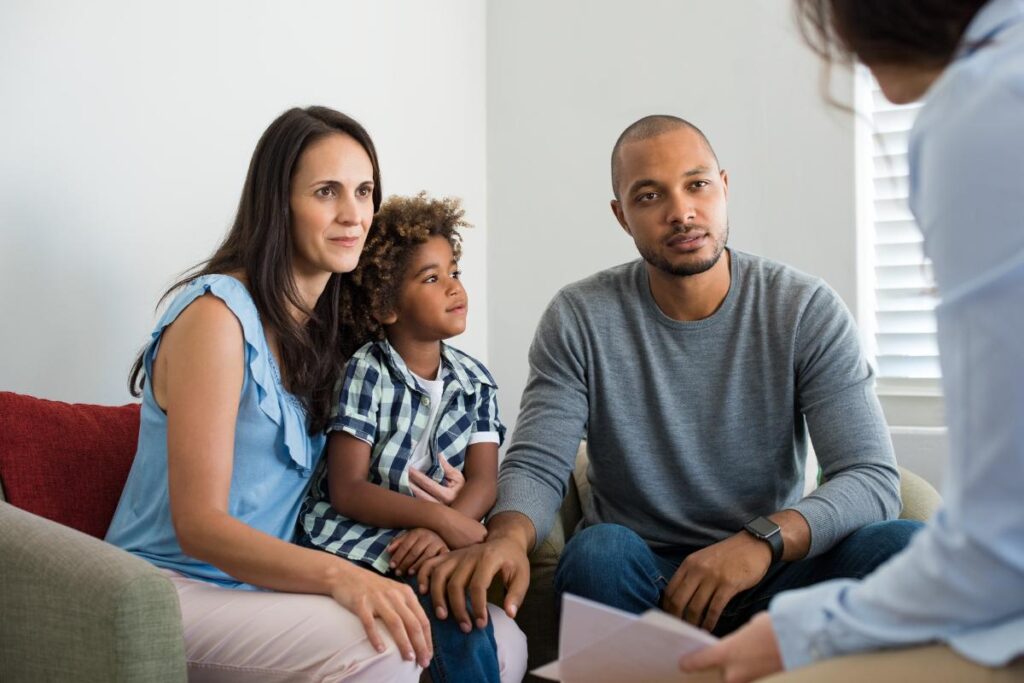Post-traumatic stress disorder (PTSD) can be devastating not only to the person who experiences it but also to those closest to them, including family members. Family trauma can leave a lasting impact on the lives of everyone involved. It can change the family dynamics, create a sense of chaos, and lead to feelings of despair, hopelessness, and guilt.
As a leading PTSD treatment center, The Ranch understands the effects of PTSD on the family and how family therapy for PTSD can help. Contact us today at 1.844.876.7680 to learn how we can help you or your loved one get back on the path to healing and recovery.
The Effects of PTSD on Family Members
PTSD can affect family members in many ways. It can cause them to feel anxious, scared, and overwhelmed. They may have difficulty sleeping, eating, or concentrating and struggle with guilt and shame. The family members of someone with PTSD may also feel isolated and alone as if they are living in a world they only understand. As a result, they may experience depression, anxiety, or other emotional issues that increase their risk of developing PTSD themselves.
PTSD from Family Trauma
One of the most common causes of PTSD in families is trauma experienced by a family member. PTSD from family trauma can result from various events, including abuse, neglect, physical violence, natural disasters, or other traumatic events. When trauma occurs, it can change the way the family functions. Roles and responsibilities may shift, communication may break down, and trust may be lost. Family members may feel ashamed or guilty and blame themselves or each other for what happened.
Family Therapy for PTSD
Family therapy can be an effective way to address the effects of PTSD on family members. Family members work with a trained therapist during therapy sessions to identify how PTSD has impacted their lives. They learn strategies and techniques to improve communication, build trust, and strengthen relationships. Through family therapy, family members can also learn how to support each other and understand each other’s feelings and experiences.
Family therapy can also help family members recognize and manage symptoms of PTSD. Therapists can work with families to develop coping strategies and identify triggers that may cause symptoms to flare up. They can also provide education and resources to help family members better understand PTSD and how to manage its symptoms.
How We Can Help at The Ranch
At The Ranch, we understand the importance of addressing the effects of PTSD on families. We offer a range of programs and services designed to meet the unique needs of family members affected by trauma. Our experienced therapists provide individual, family, and group therapy to help family members heal and rebuild relationships. We use evidence-based treatments, including cognitive-behavioral therapy, trauma-focused therapy, and 12-step alternatives to provide personalized care to each person we serve.
We also offer experiential therapy programs like equine therapy to help family members process their feelings in a safe and supportive environment. Our programs and services are covered by commercial insurance or available on a self-pay basis, making them accessible to those who need them.
Enroll in the PTSD Treatment Center at The Ranch Today
PTSD affects the entire family when one member experiences trauma. It can cause significant emotional turmoil and damage family dynamics. However, family therapy can help individuals and their families overcome the effects of PTSD and process trauma.
If you or a loved one is struggling with PTSD or the effects of trauma on your family, contact The Ranch today. We are here to help you navigate the challenges of recovery and healing.
At The Ranch, we provide many therapies and services to help families recover from trauma and heal together. Remember, you don’t have to face this challenge alone. Contact us today at 1.844.876.7680 or online to learn more about how we can help.

